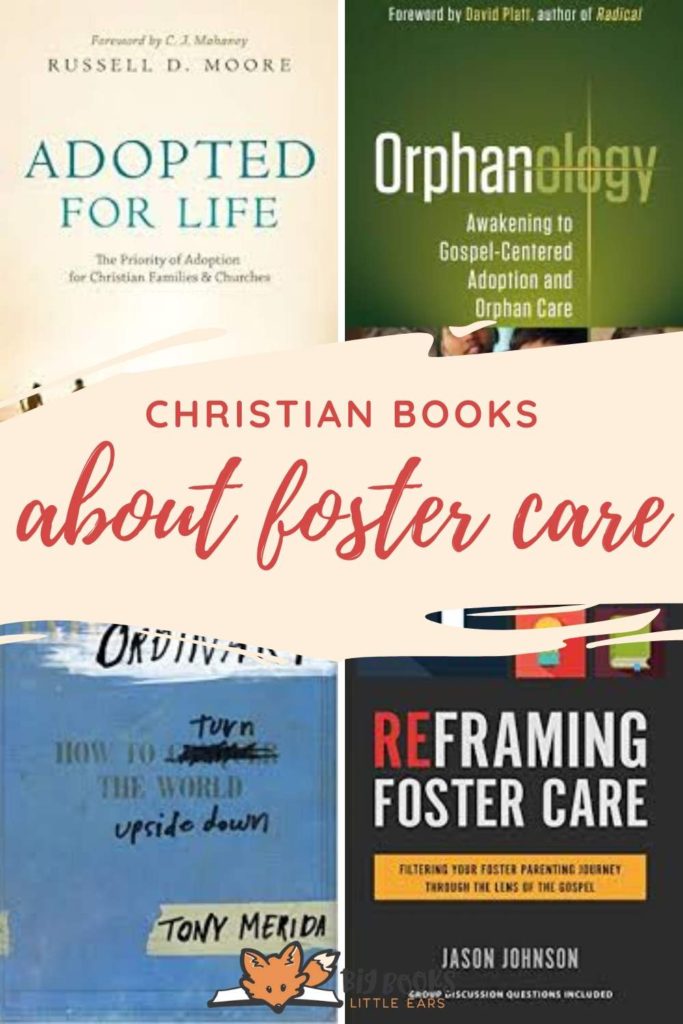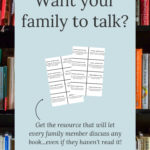Full disclosure: our family can’t be a foster family. We tried, and our marriage couldn’t handle it. Thankfully, we found out before we had a foster child join our family. However, from that experience, I found a passion for the theology of orphan care and started reading all of the Christian books about foster care that I could find!
(I talk a little bit about our story and serving foster families through respite care in this list of tips on how to read aloud to kids from hard places.)
Heads up that the books on this list of Christian books are only about the theology of adoption and orphan care. There are a lot of really fabulous secular books about foster care and adoption, but I only included non-fiction, blatantly Christian books about foster care. There are also a lot of great Christian and secular memoirs about adoption and foster care – I didn’t include those either. Theology or bust!
If I had to start somewhere, if you are new to thinking about foster care and adoption, I’d recommend Ordinary, followed by Orphanology. If you are already a foster parent, I recommend ReFraming Foster Care. However, all of these Christian books about foster care are worth reading for both groups!
This post contains referral links to Amazon for these products. As an Amazon Associate I earn from qualifying purchases. It does not cost you extra to purchase through my links.
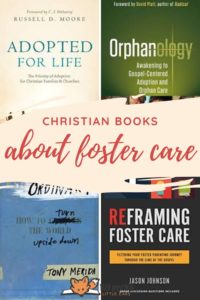
Christian Books About Foster Care and Adoption
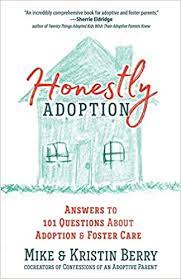
Honestly Adoption by Mike and Kristen Berry
I recommend Christian foster care books by the Berry’s because I feel like they’re real. Those perfect instagram influencers who show pictures of their multicultural adoptive families and say that all families are called to adopt are NOT REAL.
If you’re just starting to think about orphan care, or if you or your spouse are not on the same page about welcoming kids into your home, this is the Christian foster care book to start with. It will clear up lots of misconceptions people have about the process looks like, all with a little humor and personal experience thrown in. It will also help you have the vocabulary to talk about these issues effectively with your spouse or church. Highly recommend as a starting point. Probably less helpful for those in the midst of the journey, but might help those around you who love you and have questions.
(Of course, I don’t agree with EVERYTHING Mike and Kristin say in this book, or on their popular podcast. But that’s why I think you should read a variety of resources, and overall it’s very helpful information.)
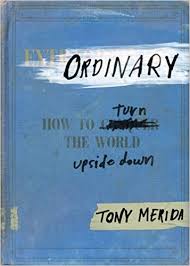
Ordinary: How to Turn the World Upside Down by Tony Merida
Don’t be fooled by Ordinary’s small size. It is a short book that packs a theological wallop. The premise of this Christian book about foster care and adoption is that it is not just special people who are called to love others, but it is what God mandates for all of us. It is hard to argue when the author and his wife have adopted five kids! There is a really nice video series that goes with the book. By the way, after our small group did this book together, two families ended up fostering and one adopted. So, expect results!
Related: Christian picture books about adoption
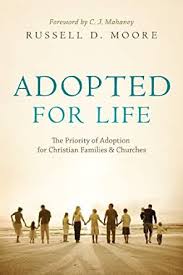
Adopted for Life by Russell D. Moore
This is the book to give extended family members who say you should not have strange children in your home. (Hasn’t happened yet? It will. Sorry.) Adopted for Life gives a theological answer to “Why should Christians adopt?” This is a must-read if you are considering adoption, or if someone you love is adopting. It’s also the book you can give to relatives who say, “Why on earth would you do that?” Moore explains the Bible’s answers to some of the really tough questions surrounding adoption. He weaves the theology into his own life story as the father of two adopted boys.
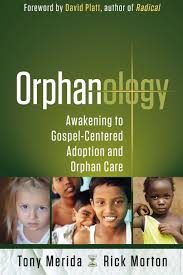
Orphanology: Awakening to Gospel-Centered Adoption and Orphan Care by Tony Merida and Rick Morton
Orphanology is, in my opinion, more academic than some of the other Christian books about foster care on this list, but I like that. It dives into some deep theology about caring for the least-of-these, and also has some truly startling statistics. You should come away from the book with a desire to help, and some clear steps for how to do just that!
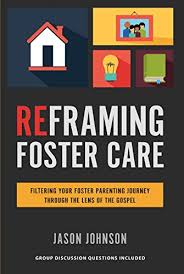
ReFraming Foster Care by Jason Johnson
Foster care is awesome, and incredible, and an amazing ministry. It can also be hard, isolating, and amazingly tiring. But above all of that, it is caring for people who God deeply loves, and that is why it is important.
ReFraming Foster Care is a brief look at 20 topics surrounding foster care and Christians, meant to be done as a small group study. It is an excellent resource if you are considering becoming a foster family, already have foster children in your home, or want to help support other foster families. (I’m pretty sure those three groups cover everyone, right?)
Heads up that it has typos and grammar mistakes, which literally brings me physical pain. So, focus on the message, and know I wouldn’t recommend it if the message wasn’t great.
(Also, check out Jason Johnson’s blog about foster care from a Christian perspective. Heads up that I don’t always agree with EVERYTHING he says, but it’s still a great resource.)
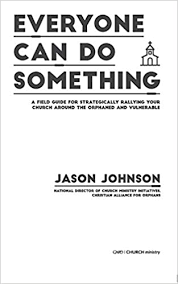
Everyone Can Do Something by Jason Johnson
Everyone Can Do Something is marketed as for pastors or ministry leaders who are leading orphan care ministries. However, I think that the message is for anyone who loves foster families: everyone can do SOMETHING! Maybe your “something” is to organize a paper good drop off for a foster family. Or maybe it’s more. More academic, and focused on action steps, I recommend this Christian book about foster care to those ready to get serious about helping but not called to foster themselves, and anyone in local ministry to families.
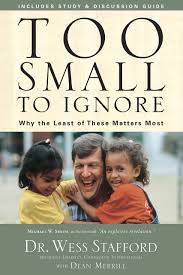
Too Small To Ignore: Why the Least of These Matter Most by Wes Stafford
Too Small to Ignore is for those who have never really thought about parent-less children before, and those who are just BARELY dipping a toe into orphan care ministry. It will help you see real needs, and think in terms of action steps to help children – maybe by bringing them into your home, maybe not. Heads up that this older book focuses on why children are important. If you’ve found this list of Christian books about foster care, you probably already know this. But this particular book might help you clarify your thoughts, or help if you are writing or speaking on that topic. (By the way, Wes Stafford was the head of Compassion International for a long time, and there is a focus on international children in this book.)
Secular Books for Christians About Trauma
God made our brains fearfully and wonderfully! He also created our children’s brains in a way that trauma can affect them in some predictable ways. All foster or adoptive parents should use all of the resources available to them to learn about how trauma affects their child’s development.
However, reading books about the brain and trauma is not just important for foster parents, but for all Christians. Let me say it again for the church greeters in the back – BEING TRAUMA INFORMED IS IMPORTANT FOR THE WHOLE CHURCH!
Knowing about trauma is a crucial step to supporting those families in your life who are parenting a child from hard places. These are excellent (yet accessible) secular books about trauma that will help you understand why you’re struggling to reach the foster child in your Sunday school class, and will help you empathize with the families parenting kids from hard places who have to sit at the back of the sanctuary every week.
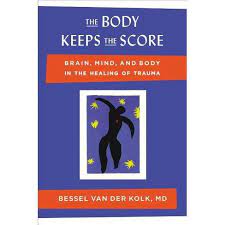
The Body Keeps the Score by Bessel Van Der Kolk
This fascinating book explains exactly how early life experiences affect us for our whole lives. It is extremely informative, and will help you empathize will all who share your pew on Sunday. For my science-minded folks, THIS IS THE BOOK FOR YOU. However, even those who won’t necessarily find it interesting to hear about the exact hormones causing havoc in our brains will get a lot from this book. Highly recommend.
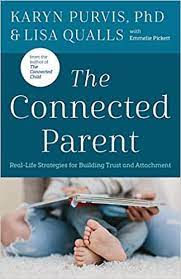
The Connected Child and The Connected Parent by Karyn Purvis and Lisa Qualls
Both of these books about trauma informed parenting are excellent. Heads up that The Connected Child is geared for once a child has a permanent plan (aka, adoption). For that reason, if you are fostering, I’d definitely start with The Connected Parent. I love Karyn Purvis’ insights in general, and the website of resources from the Karyn Purvis Institute of Child Development could help a lot if you’re looking for specific trauma informed parenting or trauma informed church resources. (A lot of them are free!)
Related: Picture books to use when a foster child leaves your home
